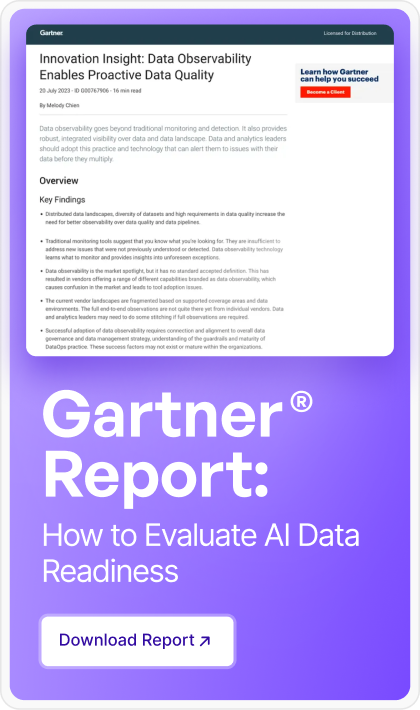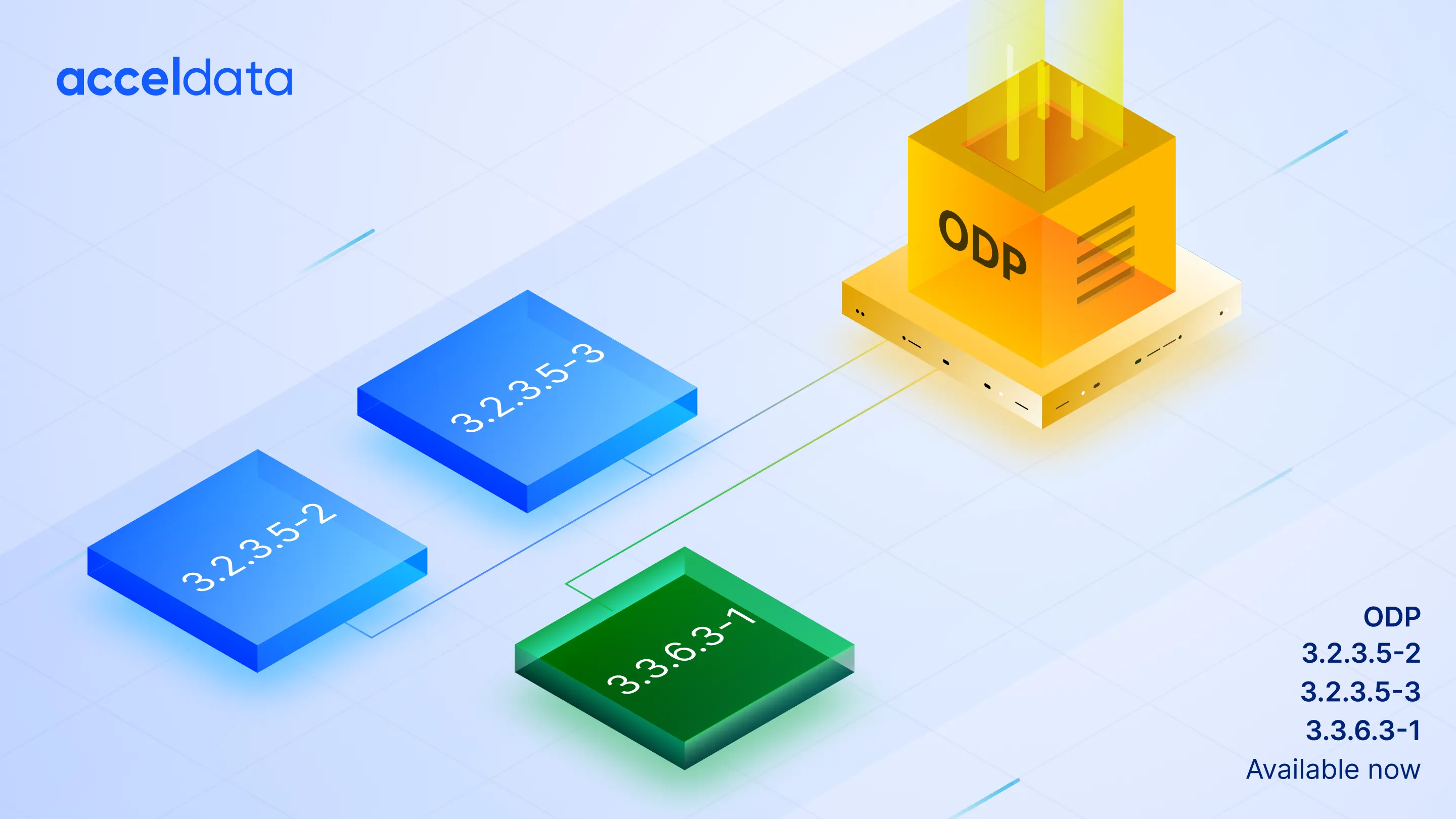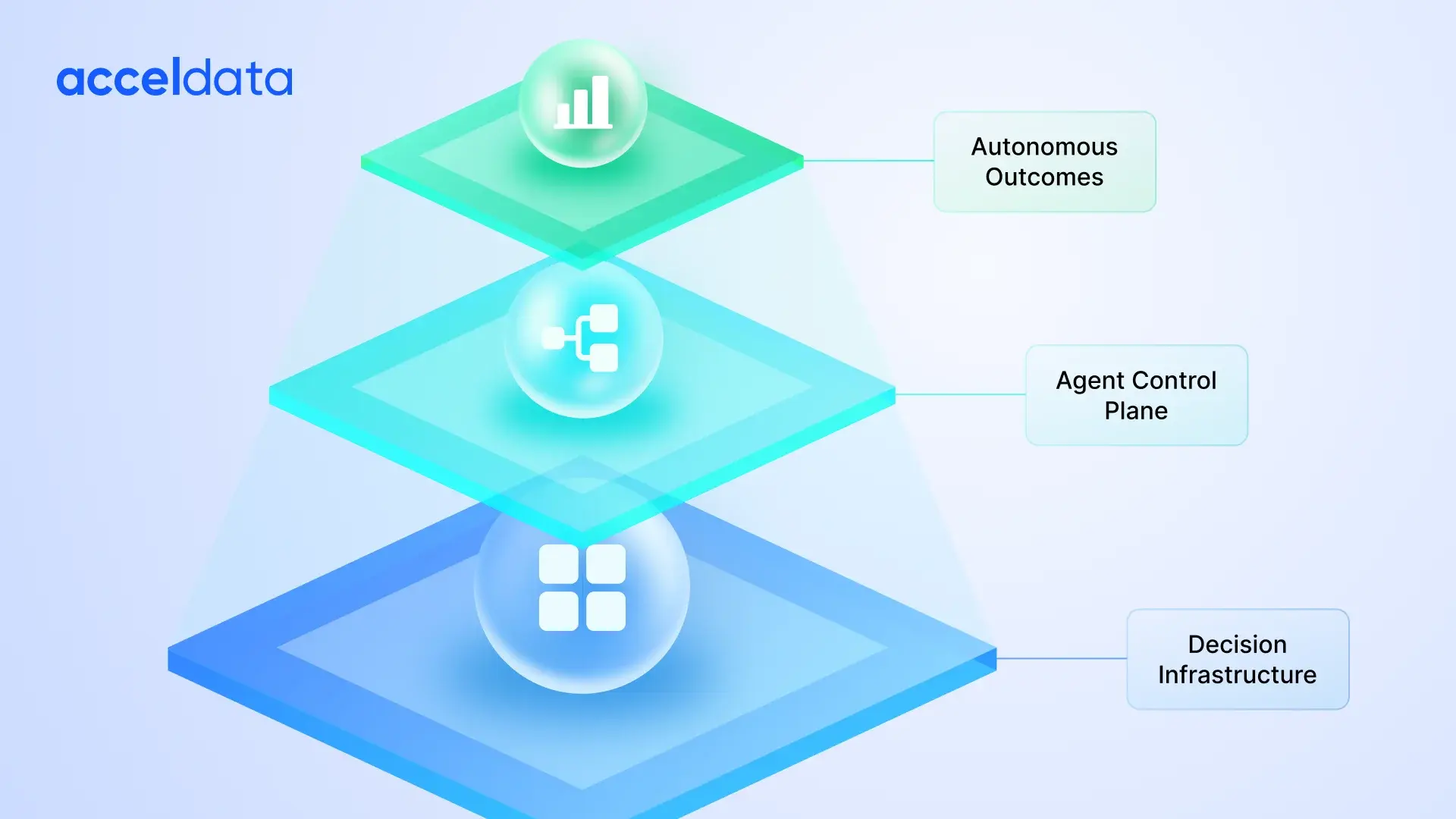Picture this: a major airline faces a critical situation—delays are stacking up, and passengers are growing frustrated. The root cause: weather disruptions causing unexpected bottlenecks at key airports. Within minutes, the airline’s operations team uses real-time data to reroute flights, reassign staff, and keep customers informed, turning a potential crisis into a smooth recovery. And that's what Operational Business Intelligence is all about.
In an ever-evolving world, Operational Business Intelligence (OBI) enables you to turn real-time data into smart, actionable insights, helping you achieve greater success while optimizing time and resources. From Southwest Airlines to beyond—businesses are harnessing real-time data insights via OBI to increase operational efficiency, enhance customer satisfaction, and grow. Here’s everything you need to know about OBI and how it can help your business navigate the unpredictable, thus driving efficiency in your operations.
What Is Operational Business Intelligence (OBI)?
OBI refers to the use of real-time data analytics to improve decision-making and optimize business processes. Unlike traditional BI, which focuses on historical data for strategic decision-making, OBI leverages real-time information to address operational needs. The key features of OBI include continuous data collection, actionable insights, and process optimization, helping organizations react swiftly to changing conditions. This shift from traditional BI to OBI has made it possible for businesses to act on data immediately, improving efficiency, responsiveness, and agility.
OBI vs. Traditional Business Intelligence
The primary distinction between OBI and traditional BI lies in their focus and purpose. Traditional BI emphasizes historical data analysis, providing insights to guide long-term strategic decisions. In contrast, OBI is designed to support real-time operational decisions by focusing on real-time data streams.
For example, while traditional BI might analyze quarterly sales trends to inform future business strategies, OBI enables managers to monitor live sales data and make adjustments immediately. While traditional BI is often used for in-depth reporting and forecasting, OBI is about quick reactions to real-time changes and live KPI tracking, making it essential for industries such as manufacturing, logistics, and customer service.
How Does Operational Business Intelligence Work?
OBI works by integrating real-time data from multiple sources, processing it on the fly, and presenting it in actionable formats like dashboards and alerts. Key components of OBI include:
- Real-time data monitoring, collection, and processing: Capturing data continuously from various systems (e.g., sales, inventory, customer feedback) to provide an up-to-date view of operations.
- Stream processing and data analytics tools: Analyzing data in real time using advanced analytics tools that identify patterns, trends, and anomalies.
- Dashboards, alerts, and data workflow automation: Presenting data visually through customizable dashboards and sending alerts when anomalies or opportunities arise, enabling quick responses and efficient decision-making.
These components empower businesses to optimize operations in real time, allowing them to proactively address challenges and opportunities as they happen.
Applications of Operational Business Intelligence
OBI is applied across multiple industries, offering solutions that drive efficiency and improve decision-making:
1. Manufacturing
Workflow automation and predictive maintenance in the manufacturing sector is a game changer, ensuring equipment stays functional and minimizes downtime, while inventory optimization helps maintain optimal stock levels.
2. Supply chain management
Real-time tracking of goods and demand forecasting ensures timely delivery and minimizes delays.
Numerous mega malls and grocery chains, for example, employ OBI to enhance their supply chain management by leveraging real-time data analytics. This approach enables the company to optimize inventory levels, improve demand forecasting, and streamline logistics operations.
3. Customer service, sales, and marketing
Sentiment analysis of customer interactions allows businesses to improve service and optimize performance in real time. Monitoring campaigns as they occur also helps adjust strategies quickly and ensures sales teams focus on the most promising opportunities.
Starbucks, for example, leverages data from its loyalty program and mobile app to track customer preferences and purchase behavior. This enables them to offer personalized rewards, promotions, and product recommendations, enhancing the customer experience.
4. Benefits beyond sectors
Whether it is healthcare, life science, finance, or logistics—businesses that adopt key BI trends benefit from its insights, enabling better patient care, financial decision-making, and optimized delivery services.
Benefits of Operational Business Intelligence
The advantages of OBI are numerous:
- Faster decision-making: OBI leverages data discovery to enable organizations to act quickly by providing up-to-date, relevant data at a moment's notice.
- Improved operational efficiency: Streamlining workflows and automating responses based on real-time data helps businesses become more efficient.
- Increased revenue potential: Proactive decision-making leads to more effective operations, higher data monetization, and greater customer satisfaction.
- Enhanced visibility: Real-time tracking and monitoring provide a clear view of operations, helping managers identify issues and opportunities.
Challenges of Operational Business Intelligence
While OBI offers significant benefits, it also presents some challenges:
- Technical issues: Integrating and scaling OBI systems across diverse data environments can be complex and require careful planning for seamless integration. Leveraging data pipelines in such situations may be key to smooth operations.
- Real-time data prioritization: In a fast-tracked scenario of data ingestion, identifying which processes need immediate attention and which can be addressed later is key to OBI. This often requires a deep understanding of business operations, as well as the data ingested in real time.
- Accurate data interpretation: With a vast outflux of data insights, it is important to accurately interpret the data to gain insights. Ensuring that employees can effectively use OBI tools to gauge data insights is key, and this often needs in-depth training and support.
Boost Operational Business Intelligence with Acceldata
Operational Business Intelligence (OBI) plays a critical role in helping organizations make timely decisions, streamline processes, and respond quickly to changing conditions. But the real challenge isn’t just accessing data—it’s ensuring that data is accurate, consistent, and ready for action when it matters most.
That’s where Acceldata’s Agentic Data Management Platform makes a meaningful difference.
Built with Agentic AI at its core, the platform goes beyond monitoring. It actively understands data pipelines, learns from patterns, and takes intelligent actions to ensure your data remains reliable across all environments—whether in the cloud, on-prem, or hybrid. It addresses common blockers like poor data quality, fragmented systems, and slow manual workflows that can stall OBI efforts.
By automating data validation, enabling real-time issue resolution, and supporting consistent governance, Acceldata helps organizations and its data teams move from reactive operations to proactive intelligence—where insights are not delayed by complexity.
With Acceldata, OBI becomes more than just a reporting function—it becomes a living system that powers smarter, faster decisions across your business.
Unlock the full potential of your operations with Acceldata. Book your demo today!
Summary
Operational Business Intelligence (OBI) helps businesses use real-time data to optimize operations and improve decision-making. Unlike traditional BI, which focuses on historical data for strategic planning, OBI enables immediate responses to live data, enhancing efficiency across sectors like manufacturing, supply chain, and customer service. By leveraging OBI, companies can quickly address issues, increase operational efficiency, and improve customer satisfaction. Businesses can strengthen their OBI capabilities by partnering with Acceldata to drive better decision-making and maintain a competitive edge in the market.








.png)








.webp)
.webp)


